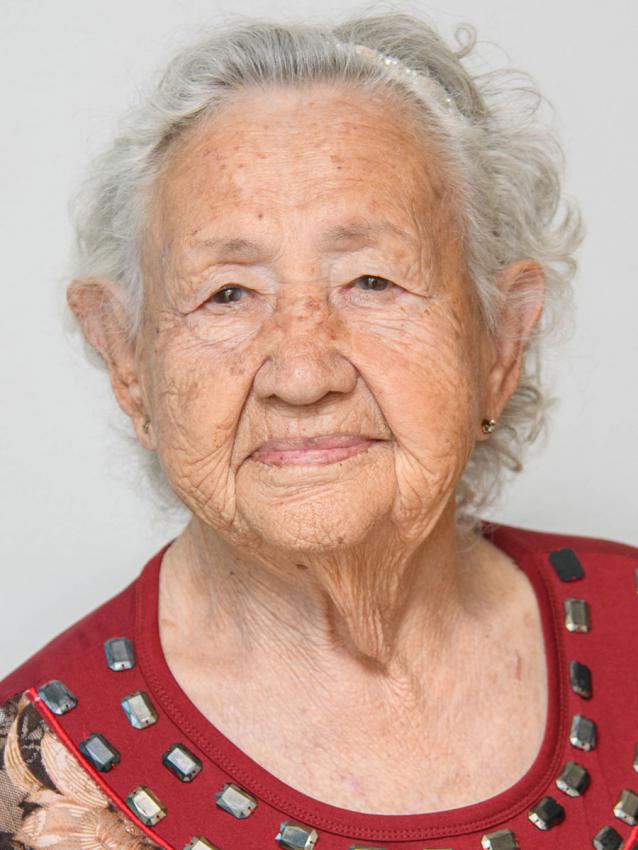Tova (Gitale) Gutstein was born in Warsaw in 1933 to Zanvel and Malka-Mania Alba, the middle of three children in a Yiddish-speaking family. The family lived at 9 Niska Street, on the border of the area that would later become part of the Warsaw ghetto, near the deportation square (Umschlagplatz).
With the establishment of the ghetto in October 1940, Tova's father was sent to forced labor. From the window of her house, Tova saw German soldiers shooting young men and women every day. Her mother had a neighbor hang a sheet over the window so that Tova wouldn't witness the horrors.
Tova's mother was too weak to nurse her baby brother, so she would feed him bread dissolved in water. Tova began to take care of the family's livelihood. She would go out of the ghetto through the sewers and beg for food from local Poles, even though they threatened to hand her over to the Germans. Sometimes, the young girl collected produce from the fields. She would tie a rope around her waist, fill her clothes with food and return to the ghetto via the sewers. When Germans stood on the manhole cover, she couldn't get out. When she grew and her shoes became too small, she wrapped her feet in rags.
When the Warsaw Ghetto Uprising broke out, Tova was outside the ghetto in search of food. Suddenly, she saw the sky turn red; the ghetto was burning. She ran towards her home. The bombing started, and she saw people falling and houses collapsing. When she reached her house, it was already destroyed and her family was gone. She turned and ran away from the ghetto. On the way, she saw many corpses lying in the streets.
Tova managed to reach the forest, and was taken in by partisans. They fed and dressed her in the coat and boots of German soldiers, as well as in clothes they tore from clotheslines. Tova lived with them in the forest for about a year and a half, and learned Russian and Polish from them. When the partisans went on missions, she would climb into a ditch and the partisans would cover the ditch with branches. One day, the partisans did not return; they were apparently killed in action against the Germans. Tova was left alone in the forest.
At the end of the war, Tova emerged from the forest. She remembered her mother saying that at the end of the war she would go to Lublin, so she began to journey towards the city, still concealing her Jewish identity. At the end of 1944, she arrived in Lublin, which had already been liberated by the Red Army. She waited for her mother at the train station every day for a month. When she was attacked by antisemitic Poles, the station manager put her in a train car and she was taken to the city of Wałbrzych, where young Jews took her to an orphanage. After eighteen months she arrived in Germany, where she found her mother, sister and brother in a DP camp in the city of Ulm.
Tova immigrated to Israel in 1948 and became a hospital nurse. Today she is active in helping Holocaust survivors.
Tova and Binyamin, z"l, a Holocaust survivor from Buczacz, have three children, eight grandchildren and 13 great-grandchildren.


